Over 200 Experts Convene in Kigali to Shape the Future of Africa’s Vaccine Cold Chain
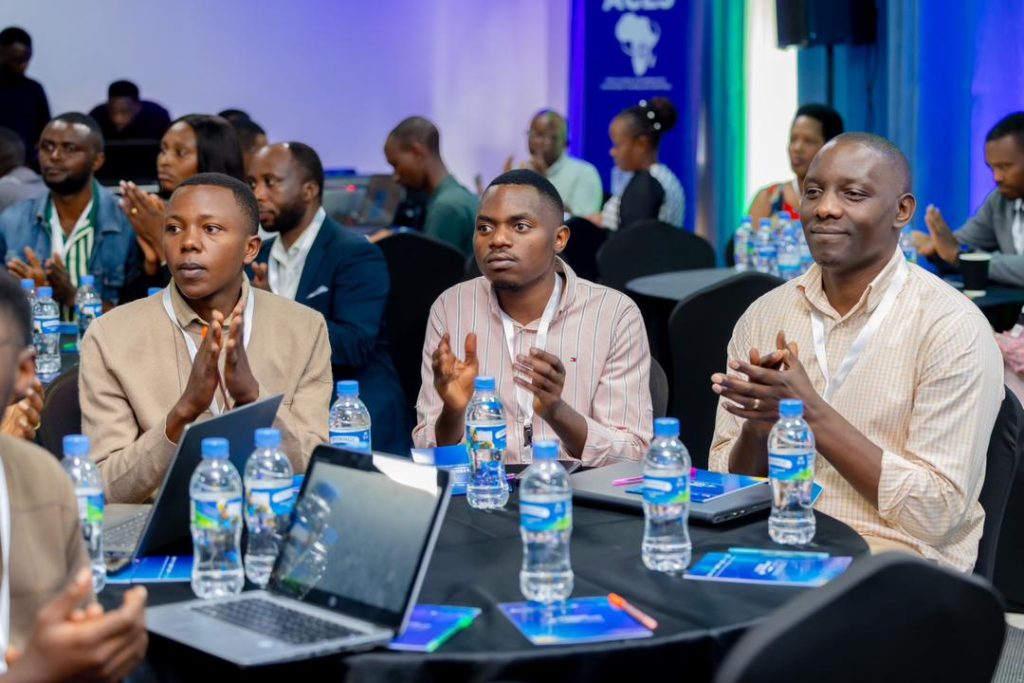
More than 200 scientists, engineers, health policymakers, and private-sector innovators from Rwanda, the United Kingdom, and across Africa have gathered in Kigali for the 2025 Vaccine Cold-Chain Symposium, a three-day event aimed at tackling the persistent cold-chain failures responsible for massive vaccine losses in Africa and around the world.
Held from November 17–19, the symposium is organized by the Rwanda Biomedical Centre (RBC) in collaboration with the Africa Centre of Excellence for Sustainable Cooling and Cold-Chain (ACES), the Rwanda Agriculture and Animal Resources Development Board (RAB), and the University of Birmingham.
This year’s edition, themed “Building the Next Generation of Vaccine Cold Chain for Africa,” adopts a One Health approach that brings together experts in human health, animal health, and environmental sciences. The goal is to ensure vaccines remain effective from production to delivery despite increasing climate pressures.
Globally, up to 50% of vaccines are lost annually due to temperature-control failures–figures that reach up to 30% in parts of Africa.
“This gathering comes at a critical moment when climate change, emerging diseases, and persistent inequities continue to shape Africa’s public-health landscape,” said Dr. Isabelle Mukagatare, Head of Biomedical Services at RBC. “Vaccines save lives, but only when supported by resilient cold-chain systems that ensure every dose reaches communities safely and on time.”
She emphasized that strong supply chains are vital across the continent, especially as climate change disrupts infrastructure, power grids, and disease patterns. Rwanda, she noted, is using advanced data systems to forecast and mitigate climate-related risks to the vaccine supply chain.
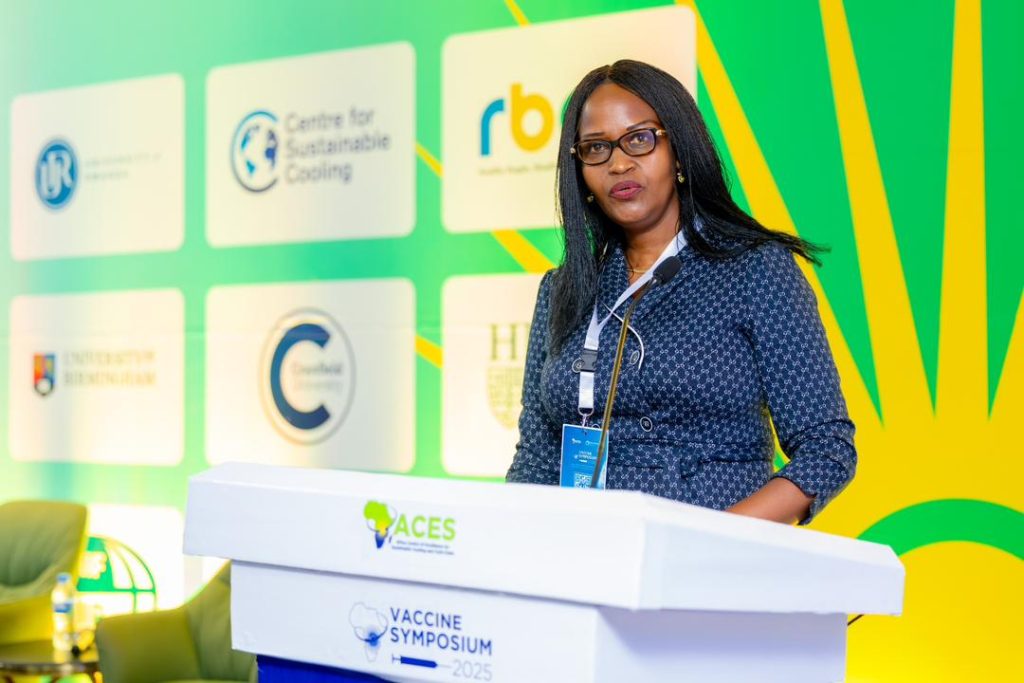
She highlighted innovations such as AI-powered antimicrobial resistance monitoring and wastewater surveillance as tools that will help anticipate outbreaks before they escalate.
“Without reliable cold chains, vaccines no matter how advanced they are, cannot protect people or animals”, she added, recalling that at COP28, vaccines were recognized as central to global climate resilience. Rwanda aims to turn that commitment into concrete action through renewable-energy-powered cold chains, UAV-based delivery systems, and smart digital tools.
Jean Claude Ndorimana, Director General of Animal Resources Development at the Ministry of Agriculture and Animal Resources, highlighted the interconnectedness of human and animal health, noting that more than 60% of emerging infectious diseases are zoonotic.
“Weak cold-chain infrastructure leads to vaccine-potential loss, wasting scarce resources, and undermining health security”, he said.
Under Rwanda’s agricultural strategy (PSTA-5), the country is committed to building climate-resilient, knowledge-driven agricultural systems. Strengthened veterinary services —including reliable cold chains for livestock vaccination, enhanced disease surveillance, smart technologies, and robust laboratory systems—are key pillars of this effort.
Ndorimana called for stronger multisectoral cooperation involving international research institutions, technology innovators, renewable-energy experts, logistics companies, development partners, and regional bodies.
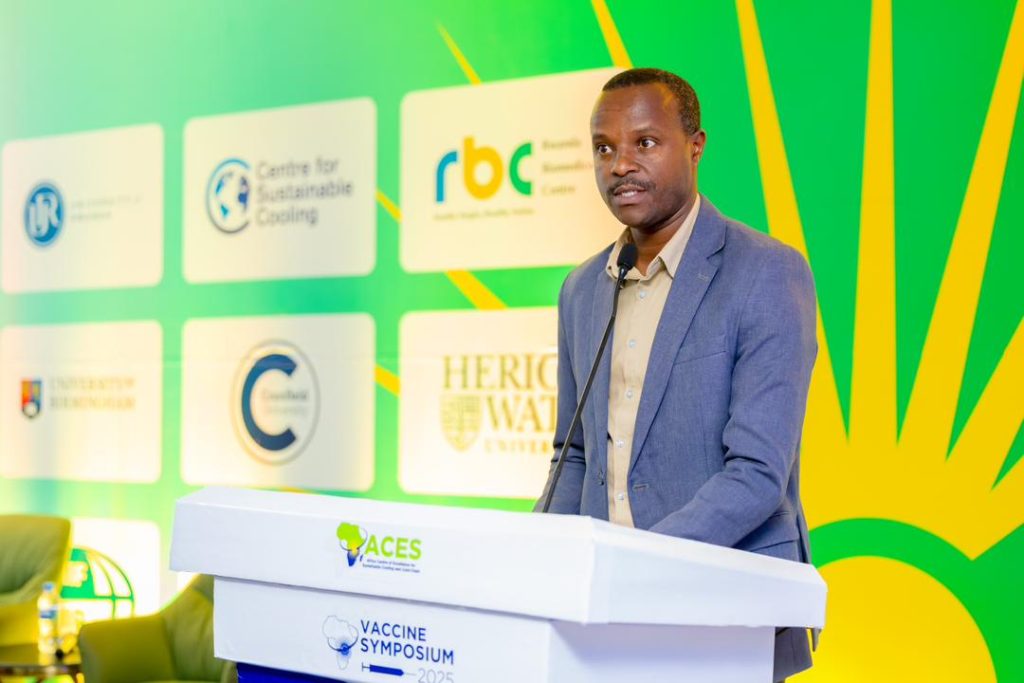
“Together, we can transform the cold chain into a real-time platform for innovation across agriculture, health, environment, and technology,” he said.
Prof. Toby Peters, Director of ACES and Professor of Cold Economy at the University of Birmingham, said the symposium aims to accelerate solutions to persistent cold-chain challenges.
He highlighted an urgent need to address the loss of over 30% of vaccines in Africa that occurs between manufacturer and delivery, especially as rising temperatures and climate pressures may make the challenge even greater.
The symposium will include high-level panel discussions, technical demonstrations, and presentations showcasing innovations in sustainable cooling, renewable-energy-powered refrigeration, and next-generation cold-chain technologies for both human and animal vaccines.
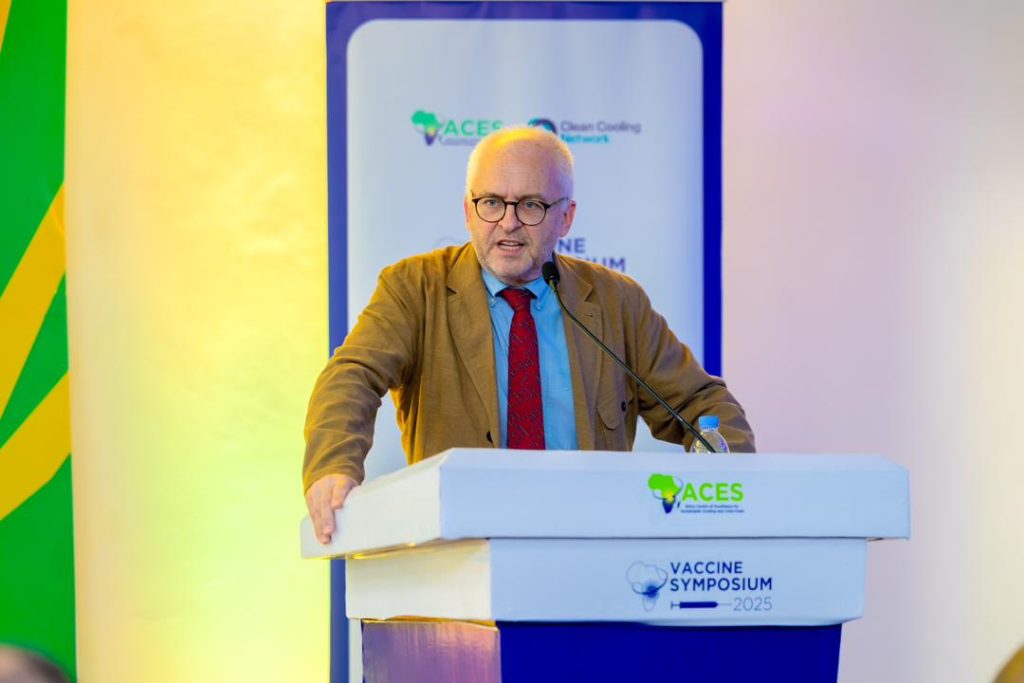
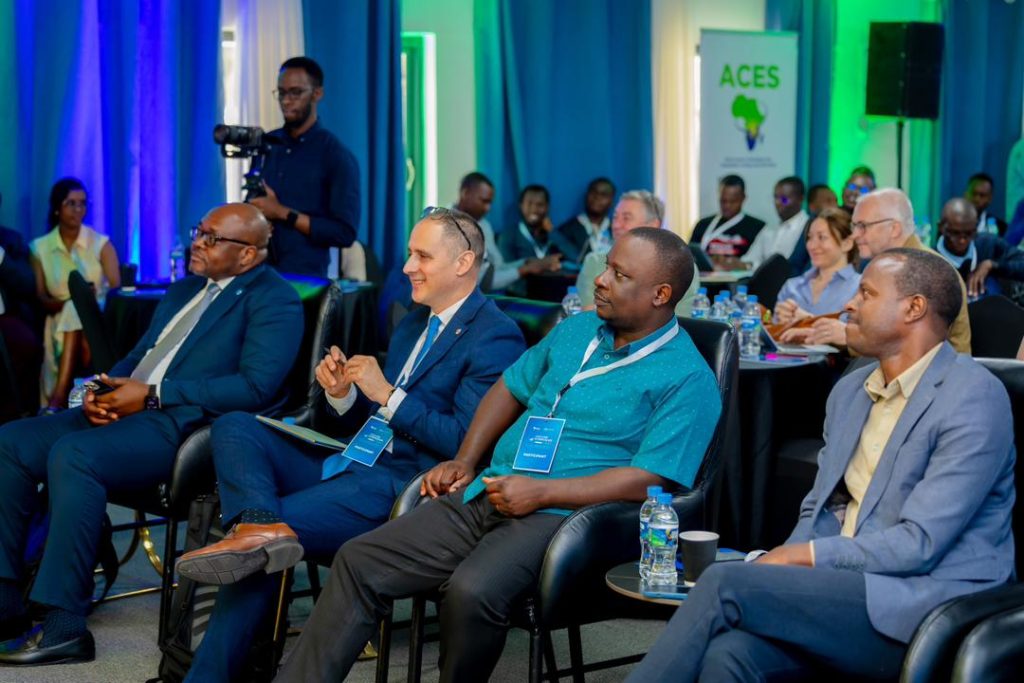
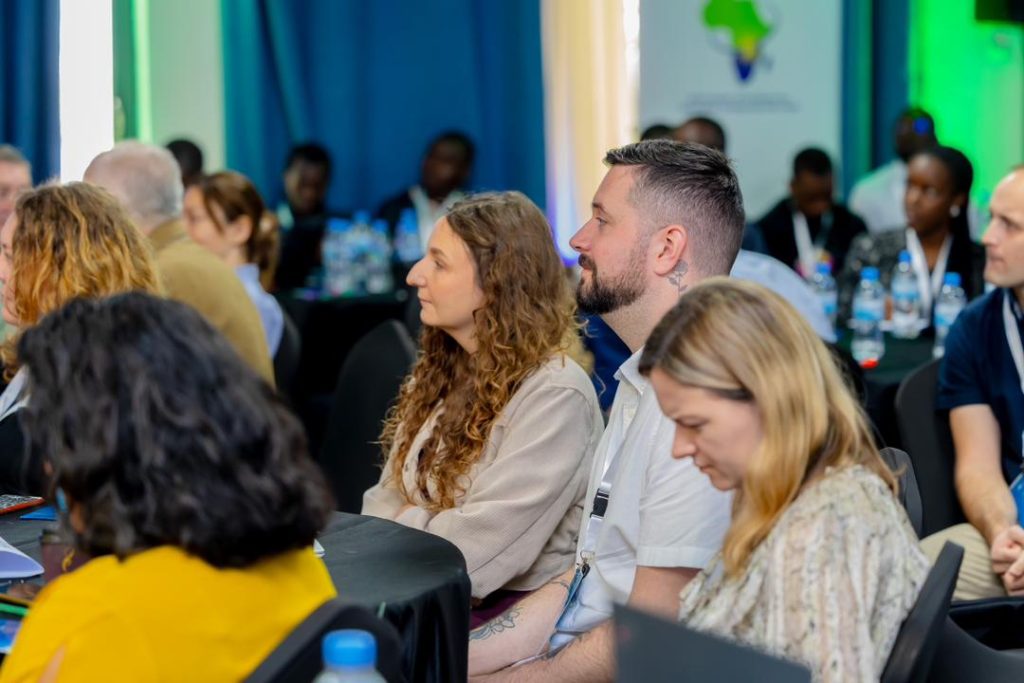
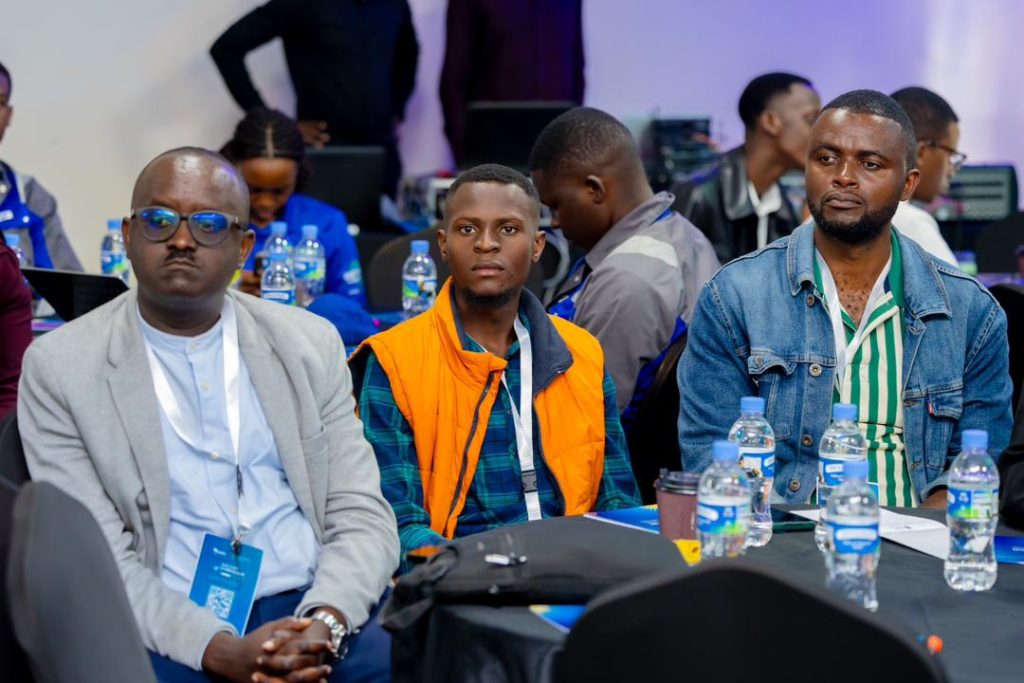
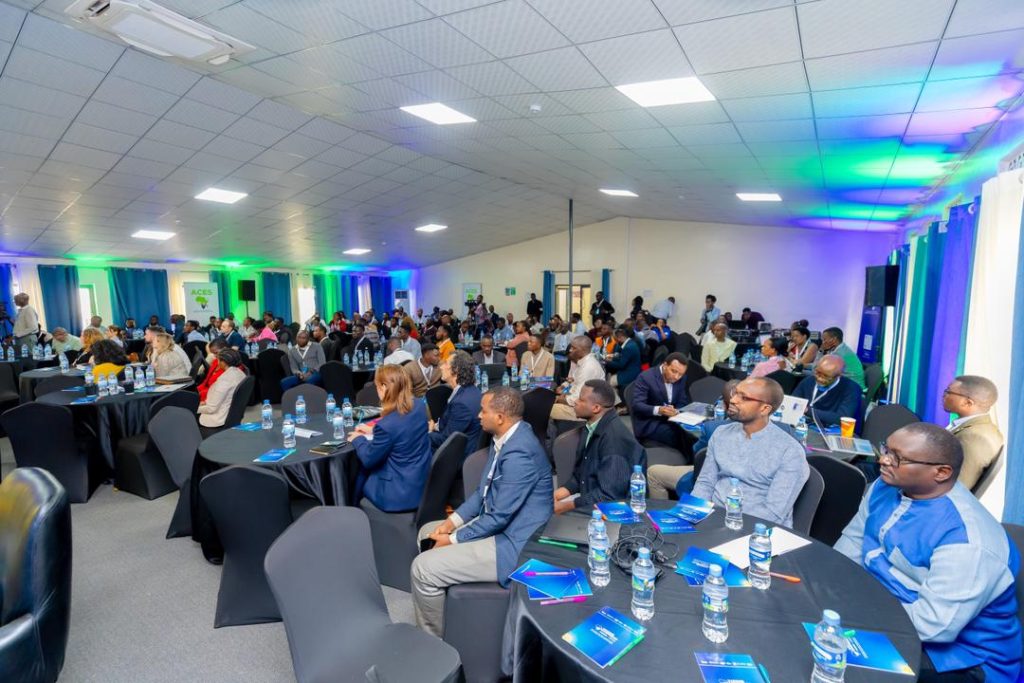
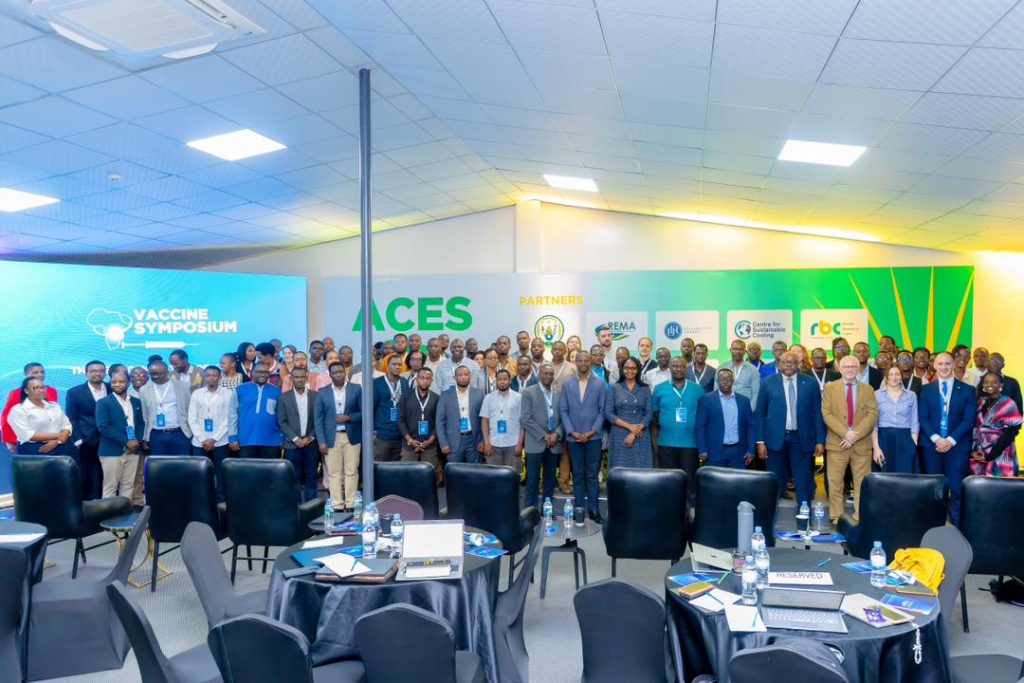

SUBSCRIBE TO OUR NEWSLETTER












